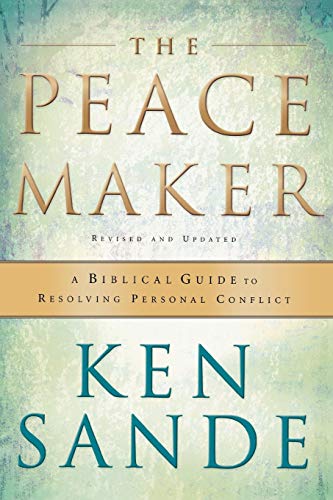Quotes about Reproof
It was well done of Paul to reprove Peter to his face, and it was well done of Peter, to praise Paul in his absence.
A Puritan Golden Treasury, compiled by I.D.E. Thomas, by permission of Banner of Truth, Carlisle, PA. 2000, p. 242.
At times one hesitates to reprove or admonish evil-doers, either because one seeks a more favorable moment or fears his rebuke might make them worse, and further, discourage weak brethren from seeking to lead a good and holy life, or turn them aside from the faith. In such circumstances forbearance is not prompted by selfish considerations but by well advised charity.
A foolish physician he is, and a most unfaithful friend, that will let a sick man die for fear of troubling him; and cruel wretches are we to our friends, that will rather suffer them to go quietly to hell, then we will anger them, or hazard our reputation with them.
A Puritan Golden Treasury, compiled by I.D.E. Thomas, by permission of Banner of Truth, Carlisle, PA. 2000, p. 242.
It is one of the most dangerous diseases of professors, and one of the greatest scandals of this age, that persons taken for eminently religious are more impatient of plain, though just, reproof than many a drunkard, swearer, or fornicator; and when they have spent hours or days in the seeming earnest confession of their sin, and lament before God and man that they cannot do it with more grief and tears, yet they take it for a heinous injury in another that will say half so much against them, and take him for a malignant enemy of the godly who will call them as they call themselves.
A Puritan Golden Treasury, compiled by I.D.E. Thomas, by permission of Banner of Truth, Carlisle, PA. 2000, p. 243.
It is one of the severest tests of friendship to tell your friend his faults. So to love a man that you cannot bear to see a stain upon him, and to speak painful truth through loving words, that is friendship.
There is something very unbecoming about a man of God who is always defending himself. Whenever one makes an observation, raises a question or offers a rebuke, if walls of defense immediately go up, it erodes respect.
Only the truly faithful friend cares enough about you or me to undertake the often thankless task of pointing out where we are wrong. None of us enjoys being confronted with our faults or sins or mistakes, so we often make it difficult for our friends to do so. As a result, most of us are more concerned about speaking agreeableness to each other than about speaking the truth. This is not loyalty. Loyalty speaks the truth in faithfulness, but it also speaks it in love. Loyalty says, “I care enough about you that I will not allow you to continue unchecked in your wrong action or sinful attitude that will ultimately be harmful to you” (Proverbs 27:6).
The Practice of Godliness, NavPress, 1996, p. 153. Used by permission of NavPress – www.navpress.com. All rights reserved. Get this book!
You demonstrate biblical love when you take steps to restore a fellow-believer overtaken in sin. This not only encourages a fallen believer to return to his first love of Jesus Christ, but it also gives others involved in the restoration process on-going opportunities to examine the depth of their love to the Lord.
Self-Confrontation Manual, Lesson 13, Page 9, Used by Permission of the Biblical Counseling Foundation.
If it is hard to accept a rebuke, even a private one, it is harder still to administer one in loving humility.
We often learn more of God under the rod that strikes us than under the staff that comforts us.
Correct him, but not as a foe, nor as an adversary exacting a penalty, but as a physician providing medicines.
You would count him unworthy the name of a friend who, knowing a thief or an incendiary to lurk in your family with a design to kill, or rob, or burn your house, would conceal it from you, and not acquaint you with it in his own accord. There is no such thief, murderer, incendiary, as sin… Silence or concealment in this case is treachery. He is the most faithful friend, and worthy of most esteem and affection, that deals most plainly with us in reference to the discovery of our sin. He that is reserved in this case is but a false friend, a mere pretender to love, whereas, indeed, he hates his brother in his heart. (Leviticus 19:17).
A Puritan Golden Treasury, compiled by I.D.E. Thomas, by permission of Banner of Truth, Carlisle, PA. 2000, p. 241-242.
We have made it an offense to admonish people about their sin, either privately or, when necessary, publicly. If only we were as loath to commit sin as we are to confront it!
So many times I’ve seen men, particularly younger guys, act as if real leadership is shown in correcting others. That’s why young men’s sermons often scold. What they haven’t figured out is that you can often accomplish more by encouragement. There are times to scold. But 80 to 90 percent of what you hope to correct can be accomplished through encouragement. If you look back at your life and consider who influenced you the most, you will probably find that it’s the people who believed in you.
There is nothing that human pride resents so much as to be rebuked.
Backslappers help us feel better about ourselves, but we don’t actually profit by them. Real change and emotional growth come by facing our weaknesses and personality defects as others see us.
When we enter into the “in Christ” existence we become one with those who are in Christ. Eternal life is received individually, but it is lived out in community. And the community battles sin in the body by confronting sinners and by requiring spiritual accountability.
The Gift of Eternal Life by Ajith Fernando taken from The Supremacy of Christ by Ajith Fernando, copyright 1995, Crossway Books, a division of Good News Publishers, Wheaton Illinois 60187, www.crosswaybooks.org, p. 183.
There is a limit beyond which patience, tolerance and charity toward another’s sin ceases to be a virtue.
1 Corinthians, 2003, Baker, p. 190. Get this book!
He cannot be a bold reprover, that is not a conscientious liver; such a one must speak softly, for fear of waking his own guilty conscience.
A Puritan Golden Treasury, compiled by I.D.E. Thomas, by permission of Banner of Truth, Carlisle, PA. 2000, p. 242.
Avoid the off-ramp of self-righteousness. Integrity calls you to suspect and inspect your motives. Are you really doing this to bless, encourage, and help? Or do you actually have a strong interest in chalking up a few points for the home team? Do you hope to be proven right? To be vindicated? To emerge as spiritually superior? Who are you intending to serve – [the other] or yourself?
The most helpful reproof frequently comes in the form of open (not leading) questions, because questions create the dialogue that invites more penetrating observations.
The three qualifications of a good surgeon are requisite in a reprover: He should have an eagle’s eye, a lion’s heart, and a ladies hand; in short, he should be endued with wisdom courage and meekness.
When God is leading us to challenge another, let not fear hold us back. Let us not argue or press our point. Let us just say what God has told us to and leave it there. It is God’s work, not ours, to cause the other to see it.
The Calvary Road, Christian Literature Crusade, 1950, p. 82. P.O. Box 1449, Fort Washington, PA 19034-8449. Used by Permission.
When we in turn are challenged, let us not defend ourselves and explain ourselves. Let us take it in silence, thanking the other; and then go to God about it and ask Him. If he was right, let us be humble enough to go and tell him, and praise God together.
The Calvary Road, Christian Literature Crusade, 1950, p. 82. P.O. Box 1449, Fort Washington, PA 19034-8449. Used by Permission.
The self-forgetful person would never be hurt particularly badly by criticism. It would not devastate them, it would not keep them up late, it would not bother them. Why? Because a person who is devastated by criticism is putting too much value on what other people think, on other people’s opinions.
It is the best and truest friend who honestly tells us the truth about ourselves even when he knows we shall not like it. False friends are the ones who hide such truth from us and do so in order to remain in our favor.
Quoted by Curtis C. Thomas, Practical Wisdom for Pastors, Crossway Books, 2001, p. 24.
Not to rebuke sin is a form of hatred, not love (Lev. 19:17). Refusing to warn a person about his sin is just as unloving as refusing to warn him about a serious disease he may have. A person who does not warn a friend about his sin cannot claim love as his motive.
Let us look at our lives in the light of this experience [in 2 Corinthians 12:7-10] and see whether we gladly glory in weakness, whether we take pleasure, as Paul did, in injuries, in necessities, in distresses. Yes, let us ask whether we have learned to regard a reproof, just or unjust, a reproach from friend or enemy, an injury, or trouble, or difficulty into which others bring us, as above all an opportunity of proving how Jesus is all to us, how our own pleasure or honor are nothing, and how humiliation is in very truth what we take pleasure in. It is indeed blessed, the deep happiness of heaven, to be so free from self that whatever is said of us or done to us is lost and swallowed up in the thought that Jesus is all.
Humility: The Beauty of Holiness, p. 83. Get this book!
If your brother sins — chapter-and-verse disobedience to the Bible — and the sin is against you, rebuke him. Not a demeaning humiliation. Just sit down with him and say, “Brother, here in [biblical text], God says… But last Tuesday, you and I were in that meeting and, as I recall, you said/did… Brother, I can’t see how that behavior lines up with this verse. How do you see it?” No vague generalities, but verifiable facts, clearly addressed by the Bible. We need to have the freedom to rebuke one another’s sinful and foolish behavior. But let’s be gentle and respectful. Let’s offer the brother an opportunity to explain himself. After all, there might be more to it than one realizes. And let’s avoid the verb “to be” (“You are…”) or “always” and “never” (“You always/never…”). Those categories are too absolute to be fair. They blast the brother to smithereens, with no dignity left.
When people know that we love them, they will accept what we say, even when it has to be a rebuke. It disposes them to listen when otherwise they might be cautious, apprehensive, and suspicious. “Love me,” said Augustine, “and then say anything to me and about me you like.” Richard Baxter’s flock used to say, “We take all things well from one who always and wholly loves us” (Derek Prime and Alistair Begg).
On Being a Pastor, Moody Press, 2004, p. 159. Get this book!
We have to know that one of the great marks of spiritual maturity is being able to take admonition and rebuke! This matter of being able to admit faults and seek to correct them is a mark of maturity (Max Forsythe).
Hatred of being corrected is the number one deficit of a fool (Todd Murray).
Jesus comes forgiving and changing the immoral. He bridges the chasm between sordid and glorious. He invites us to cross over from death to life. What was perverted can be converted. To disagree with immorality is not simply to condemn the immoral. It is to identify particular forms of lostness that need finding. We worship a seeking and finding God. We have been sought out and found by a Savior. He reproves the unruly in order to invite us to come seek help.
Making All Things New: Restoring Joy to the Sexually Broken by David Powlison, ©2017. Used by permission of Crossway, a publishing ministry of Good News Publishers, Wheaton, Il 60187, www.crossway.org.
To truly overlook an offense means to deliberately decide not to talk about it, dwell on it, or let it grow into pent-up bitterness. If you cannot let go of an offense in this way, if it is too serious to overlook, or if it continues as part of a pattern in the other person’s life, then you will need to go and talk to the other person about it in a loving and constructive manner.
Reprinted from The Peacemaker: A Biblical Guide to Resolving Personal Conflict, Ken Sande, Baker Books, 3d ed., 2004, p. 83. Peacemaker® Ministries. www.Peacemaker.net . Used by Permission. Get this book!
Sin needs to be addressed when it is seriously harming the offender, either by direct damage or by impairing his or her relationship with God or other people. Looking out for the well-being of other Christians…is a serious responsibility. Unfortunately, because many Christians have adopted the world’s view that everyone should be allowed to “do his own thing,” some believers will do nothing, even when they see a brother or sister ensnared in a serious sin. This is not the kind of love Jesus demonstrated, nor is it consistent with the clear teaching of Scripture.
Reprinted from The Peacemaker: A Biblical Guide to Resolving Personal Conflict, Ken Sande, Baker Books, 3d ed., 2004, p. 152. Peacemaker® Ministries. www.Peacemaker.net. Used by Permission. Get this book!
The Bible repeatedly warns us not to be eagerly looking for opportunities to point out the faults of others. In fact, anyone who is eager to go and show a brother his sin is probably disqualified from doing so. Such eagerness is often a sign of pride or spiritual immaturity, which cripple our ability to minister effectively to others. The best confronters are usually people who would prefer not to have to talk to others about their sin but will do so out of obedience to God and love for others.
Reprinted from The Peacemaker: A Biblical Guide to Resolving Personal Conflict, Ken Sande, Baker Books, 3d ed., 2004, p. 153. Peacemaker® Ministries. www.Peacemaker.net. Used by Permission. Get this book!
Truth always carries with it confrontation. Truth demands confrontation; loving confrontation nevertheless. If our reflex action is always accommodation regardless of the centrality of the truth involved, there is something wrong.
It’s shallow thinking to always equate disagreement with hate. Much disagreement we have with others is because we care. Just ask any parent!
Why does a healthy church reprove one another according to the Word of God? 1. It is commanded in the Bible. 2. It demonstrates love for one another. 3. It provides for Christians what they should desire. 4. It is a test of our spiritual maturity, humility. 5. It reconciles strained relationships. 6. It protects the purity, example and testimony of the church.
Biblical steps for giving reproof: 1. Preliminary- Realize that you are not on the sin patrol! It is your responsibility to look for the good in others and seek ways to edify your brothers and sisters in Christ (1 Thes. 5:11). Confronting others should only occur when the sin is brought to your personal attention (1 Cor. 5:1-5), not news that you received from another. Also, be sure that it is a biblical sin and not just an issue of preference! 2. Pray for the offender hat God would give him or her awareness of the sin (Psm. 119:18) and that God soften his or her heart to the truth in your rebuke (Psm. 51:17). Pray also for yourself that God will use you as a mouthpiece for His glory (Rom. 12:1) and the other’s good (Heb. 10:24). That He will rightly prepare your heart (Psm. 139:23). Have you sinned against the offender (and God) regarding this matter by demonstrating gossip (2 Cor. 12:20), bitterness (Heb. 12:15), judgmentalism (Mt. 7:1-2) or lack of forgiveness (Eph. 4:32)? Is your spirit right with God prior to the confrontation by demonstrating proper motives (1 Cor. 4:3-5), self-examination (Mt. 7:5), humility (Gal. 6:1, 3) and gentleness (Gal. 6:1)? 3. Confront him or her with the Word (Heb. 4:12). Initially go in private (Mt. 18:15). Take the offender to specific Bible passages that directly address the situation (2 Ti. 3:16-17). Explain/reason/dialogue where necessary (Pr. 25:15). Point him or her to Christ for forgiveness and repair (1 Jn. 1:8-9). Restore the relationship if necessary (Mt. 5:24). Pray together (Jas. 5:16). 4. Offer assistance – bear his or her burdens (Gal. 6:2), prayer (1 Sa. 12:23), accountability (Pr. 27:17) , encouragement (1 Thes. 5:11), counseling (Pr. 27:9) and tangible help (1 Jn. 3:18).
Biblical steps for receiving reproof: 1. Preliminary- Make it your passion to strive for godliness (1 Tim. 4:8)! Seek conformity to Christ as your primary goal (Rom. 8:29)! Be filled with the Spirit (Eph. 5:18)! Therefore when reproof comes, you will welcome it in gratitude with a humble spirit and teachable heart, eager to implement Spirit-driven biblical change for the glory of God. 2. During the time together – pray before sharing the concern (Phil. 4:6), listen carefully to the rebuke (Pr. 18:13), ask questions to clarify the matter (1 Cor. 14:33) and thank the person for his or her concern (Eph. 1:15-16). 3. Be careful not to justify your sin (Lk. 16:15), blame others (1 Sa. 25:24), including the person coming to you (Gen. 3:12) and judge the individual’s motives (Jas. 4:12). 4. After the time together examine your life in the Spirit with the truth in God’s Word (Psm. 26:2) and take necessary actions for reparation by confessing any revealed sin to God (Psm. 32:5), seeking forgiveness from those you may have injured (Gen. 50:17) and developing a plan for repentance (Ac. 26:20).
The right way to receive correction based upon Scripture is to be humble. The humble person welcomes every chance the Holy Spirit might be using to burn off the rough edges and forever make him more like his blessed Savior. The humble person doesn’t respond harshly, regardless of the criticism or the messenger, but is concerned with the content and takes everything with a grain of salt, considering it, praying about it and diligently seeks to determine where the correction, to whatever degree, is appropriate. God is given time to work in his heart. Energy and contemplation is placed on, “What is the Lord saying to me” and “how can I learn from these comments” as compared to, “How am I going to defend myself against this attack.” It is about not flying off the handle when corrected, but exercising self-control. Don’t we know that “God is opposed to the proud, but gives grace to the humble” (Jas. 4:6; 1 Pet. 5:5). You see, when we run away from even the slightest hint of criticism, we forfeit the very means by which the Lord wants to use to make us more godly.
It’s effortless just to watch believers self-destruct spiritually and do nothing about it. It’s effortless to do nothing and watch a relationship with others that took years to develop just vanish in a matter of days. Few enjoy confronting others or the often hostile responses from hard hearts we often receive in return, but confronting others with the right spirit is the evidence of our love and according to Scripture it is something that must not be neglected. “Faithful are the wounds of a friend” (Pr. 27:6).
Confronting other believers in unrepentant sin is an obligation for all Christians (Mt. 18, Gal. 6, Jas. 5, many Proverbs), but it is not a mechanical obligation that should be approached in an impersonal matter. You are dealing with a living soul. Their heart is being held in your hands. You are a fellow sinner yourself. It’s not about winning a duel. It’s about bringing a person back to fellowship with the Lord, back to a place of safety. Like Paul in 2 Corinthians 7:8, we don’t regret the outcome of repentance and their restoration with the Lord, (that’s our goal!), but we do regret the momentary period of the sorrow we inflicted as we share Scriptures, expose sin and call to repentance. Any parent who has rightly disciplined their own child should know what I am talking about. Even though we know it’s the right thing to do, how often do we agree with the saying, “This is going to hurt me more than it hurts you.”
It is important that when we are engaged in admonition or exhortation or confrontation with a brother who is overcome in sin, we call attention to the truth in an extraordinarily compassionate and tender and loving spirit.
The Purpose of God, An Exposition of Ephesians, Christian Focus Publications, 1994, p. 107
You cannot control your children, you say. Then the Lord have mercy on you! It is your business to do it, and you must do it, or else you will soon find they will control you. No one knows what judgment will come from God upon those who allow sin in children to go unrebuked.
Some are childishly anxious to know their friend’s opinion of them, and if it contain the smallest element of dissent or censure, they regard him as an enemy forthwith. Surely we are not popes, and do not wish our hearers to regard us as infallible! We have known men become quite enraged at a perfectly fair and reasonable remark, and regard an honest friend as an opponent who delighted to find fault; this misrepresentation on the one side has soon produced heat on the other, and strife ensued. How much better is gentle forbearance! You must be able to bear criticism, or you are not fit to be at the head of a congregation; and you must let the critic go without reckoning him among your deadly foes, or you will prove yourself a mere weakling.
Public men must expect public criticism, and as the public cannot be regarded as infallible, public men may expect to be criticized in a way which is neither fair nor pleasant. To all honest and just remarks we are bound to give due measure of heed, but to the bitter verdict of prejudice, the frivolous faultfinding of men of fashion, the stupid utterances of the ignorant, and the fierce denunciations of opponents, we may very safely turn a deaf ear.
A sensible friend who will unsparingly criticize you from week to week will be a far greater blessing to you than a thousand undiscriminating admirers if you have sense enough to bear his treatment, and grace enough to be thankful for it.
Get a friend to tell you your faults, or better still, welcome an enemy who will watch you keenly and string you savagely. What a blessing such an irritating critic will be to a wise man, what an intolerable nuisance to a fool!
Imagine a father who claims to love his children but takes no action to stop them from becoming drug addicts or prostitutes. Or imagine seeing a brother in Christ walking alone heading straight toward quicksand, but you say nothing and walk away in silence. This isn’t genuine love; it’s apathy. It is not loving one’s neighbor as oneself; it is not loving as Jesus loved. Yet this is what we are like when we refuse to correct a wayward believer, to reprove sinful behavior, or to warn others of false teachers.
Leading With Love, Lewis and Roth, 2006, p. 137, Used by Permission. Get this book!
If you are not a positive encourager, you will probably be a poor admonisher.
Leading With Love, Lewis and Roth, 2006, p. 148, Used by Permission. Get this book!
As Christian leaders we will be required to admonish and rebuke. In fact, a good deal of time may be spent doing this work. It is an important aspect of ministry not to be neglected because it is used by God to rescue people from sin and deception. You will never know until heaven the full extent of good you have done for others by rebuking them about sin or warning them about false doctrine.
Leading With Love, Lewis and Roth, 2006, p. 142, Used by Permission. Get this book!
Basic principles in confronting and rebuking in love:
1. Guard your attitude against pride, vindictiveness and impatience, but especially against anger.
2. Resist making quick accusations – you may not have all the facts straight and you may be wrong.
3. Think of all the words you will use. Furthermore choose the right place and time.
4. Use patience and Scripture.
5. Be gentle with people which means to be kind, tender, gracious and calm – not harsh or combative.
6. Balance reproof and encouragement and hope.
7. Pray for wisdom, courage and self-control. Also pray that the Lord would prepare the other person or persons to receive your reproof.
Adapted from: Leading With Love, Lewis and Roth, 2006, p. 143-149, Used by Permission. Get this book!
Oh, that I might never be so void of love to my fallen brothers as not to give him a serious reproof, nor so void of love to myself as not to receive a serious reproof.
A Puritan Golden Treasury, compiled by I.D.E. Thomas, by permission of Banner of Truth, Carlisle, PA. 2000, p. 242.
Reprove seriously. Reproof is an edged tool, and must not be jested with. Cold reproofs are like the noise of cannons a great way off, nothing affrighting us. He that reproves sin merrily, as one that takes pride to show his wit and to make the company laugh, will destroy the sinner instead of the sin.
A Puritan Golden Treasury, compiled by I.D.E. Thomas, by permission of Banner of Truth, Carlisle, PA. 2000, p. 245.
Reprove compassionately. Soft words and hard arguments do well together. Passion will heat the sinner’s blood, but compassion will heal his conscience.
A Puritan Golden Treasury, compiled by I.D.E. Thomas, by permission of Banner of Truth, Carlisle, PA. 2000, p. 245.
The reprover should have a lion’s stout heart, or he will not be faithful, and a lady’s soft hand, or he is not like to be successful.
A Puritan Golden Treasury, compiled by I.D.E. Thomas, by permission of Banner of Truth, Carlisle, PA. 2000, p. 245.
Reproofs should be as oils or ointments, gently rubbed in by the warm fire of love.
The opposite of love is not correction but indifference.
Rebuke must be administered carefully and only after we have gathered sufficient, irrefutable evidence of an unrepentant attitude. If it is a matter of their ignorance of biblical attitudes or morality, our rebuke must be in the form of gentle instruction. But if it is a matter of high disregard of God’s standards (and not our own personal ones), our rebuke must be firm and clear. Even then patience must be exercised, allowing the Spirit of God to work in their hearts. But given a reasonable period of time, the rebuke may need to be coupled with a command to forsake that sin immediately.
Practical Wisdom for Pastors, Crossway Books, 2001, p. 128-129. Used by Permission. Get this book!
Why do any of us get upset or tense when confronted? Why do any of us activate our inner lawyer and rise to our own defense? Why do any of us turn the tables and remind the other person that we are not the only sinner in the room? Why do we argue about the facts or dispute the other person’s interpretation. We do all of these things because we are convinced in our hearts that we are more righteous that how than we are being portrayed in the moment of confrontation. Proud people don’t welcome loving warning, rebuke, confrontation, question, criticism, or accountability, because they don’t feel the need for it. And when they do fail, they are very good at erecting plausible reasons for what they said or did, given the stress of the situation or relationship in which it was done.
Self-Glory by Paul David Tripp taken from Dangerous Calling by Paul David Tripp, copyright 2012, Crossway Books, a division of Good News Publishers, Wheaton Illinois 60187, www.crosswaybooks.org, p. 178.
Jesus and Paul both urge us to discern when someone’s teaching or behavior is ungodly (Mt. 7:15-20; 2 Tim. 2:23-4:5). We may even rebuke a sinner gently, if necessary (Lk. 17:3-4, Gal. 6:1), with a loving eye to repentance, but all feelings of scorn, superiority, condescension, or self-righteousness are to be confessed as sin before we confront the person (Mt. 7:1-5).
Copied from Romans, Life-change Series, 1987, p. 44. Used by permission of NavPress – www.navpress.com.
When love is felt, the message is heard.
Quoted by Curtis C. Thomas, Practical Wisdom for Pastors, Crossway Books, 2001, p. 65.
[Contrary to] people-pleasers, only people-lovers are able to confront.
When People are Big and God is Small, P&R Publishing, 1997, p. 41. Get this book!
The Bible always portrays our sin problem as being deeper than any pain we could experience. To ignore sin, especially when it is obvious, is to offer only a very superficial kind of love and compassion, and to withhold help that is needed at the deepest level.
Blame in on the Brain? P&R Publishing, 1998, p. 123. Get this book!
Criticism should be viewed as a tool for growth and change. Several temptations arise when we experience criticism. 1. We fear the loss of respect; 2. We look for reasons to challenge the data; 3. We search for flaws in the process; 4. We point out weakness in the other person; 5. We demand credit for our strengths; 6. We play the martyr, reeling under the unjust complaints of others. Yet, when we run away from the slightest hint of criticism, we forfeit the very means by which our Lord wants to make us more effective and godly.
Instead of yielding to the temptation of pride and fear of man, we ought to consider every criticism as a providential gift from the Lord to teach us some beneficial lessons: 1. Criticism drives us to prayer – A greater degree of dependency results when we’re burdened over the criticism of others. We’re compelled to take every matter before the Lord so that our heart is guarded (Phi. 4:6). 2. Criticism drives us to the Scriptures – We are constrained to search the word of God for clarity, wisdom, and understanding (Psm. 119:98-100; Pro. 3:5-6; 2 Tim. 3:16-17). 3. Criticism refines our communication skills – We benefit from having to rearticulate what we believe in clearer terms and a more careful disposition (Eph. 4:29; Col. 4:6). 4. Criticism forces us to examine our hearts – Criticism causes us to look carefully at our attitudes and motives, and we are reminded of our own sinfulness (1 Cor. 4:3-5; Gal. 6:4-5). 5. Criticism produces spiritual endurance – Being criticized may be painful, but God uses it to wean us from our own resources and make us stronger in His grace and strength (Jas. 1:2-4; 2 Cor. 12:7-10). 6. Criticism provides unique opportunities to model godly humility – When others disagree, even sharply, we should be an example of humble submission to the Lord’s sanctifying grace in our lives (Pro. 9:8-9; 12:15). 7. Criticism offers greater opportunity to give God glory – God is exalted and His glory magnified when His servants bear up graciously under harsh treatment (1 Pet. 2:20; 3:15-17).
When criticism comes, we must remember that our response is what we are modeling for others. The following principles help us eliminate defensiveness and pride: 1. Search for any part of the criticism that is true and own it (Psm. 51:4). 2. Make no demands on others to treat you as if there’d never been an offense (Psm. 138:6; Pro. 3:34; Mat. 3:12; 1 Pet. 5:6-7). 3. When a criticism has no merit, seek to understand how the person could’ve drawn their conclusions. 4. If a complaint is leveled with sinful attitudes, forgive the offense quickly and lavishly, exercise self-control, and respond with carefully chosen words and attitudes.
Summarized from: Exemplary Spiritual Leadership, DayOne, 2010, p. 99, Used by Permission.
When God’s name and character are belittled, we ought to be indignant. But when others attack our lives and ministries, God remains the issue. He will bring everything to light at the proper time for the vindication of His glory and power (Matt. 10:26; 1 Cor. 4:5)… Taking personal offense at the attacks of others makes our reputation the issue and stores up personal “baggage” in our hearts, leading to bitter grudges.
Defending our personal reputations by going on the attack directs attention toward us instead of toward the authority and glory of God. Criticism should be challenged, not when our reputations are maligned, but when God is.











































